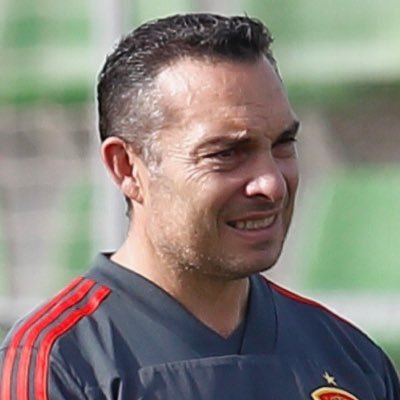Online-based
Professional Diploma in Managing Director
🔥 Enroll Now – Limited Time Offer!
Professional Diploma in Managing Director
10 months
English
Online-based
Introductory
Barça Innovation Hub
Description
Our comprehensive approach offers cross-disciplinary knowledge, practical tools, and key skills for success as a sports manager. Participants will gain expertise in both technical and administrative aspects, as well as develop leadership competencies for effective management in the sports sector.
The program aims to develop future leaders in club management, sports federations, and other athletic organizations. We provide essential tools for planning and organization while focusing on crucial personal, social, and communication skills needed to meet the challenges of leadership roles in sports.
1,200 € 600 €
START DATE
10/03/2026
Level
Introductory
Delivery mode
Online-based
Duration
10 months
Average dedication
6/8 weekly hours
Delivered in
English
Learn to
Carry out the diverse responsibilities of a sports manager.
Manage and guide teams in a professional setting, promoting unity and high performance.
Gain familiarity with the professional football ecosystem, including how to interact with various stakeholders in the industry.
Experts Advisors:

David Fernández

Didac Soler Solà

Joaquín Valdés

Marcus Bach-Armas

Paco Seiru-lo

Gonzalo Martín Antolín
Course Syllabus
Functions of the Sports Manager
Module 1: Knowledge of the club, its identity, and its environment.
Module 2: Resource and budget management.
Module 3: Define the club model (Mission - Vision - Values) and Organizational Chart.
Module 4: Human Resource Management - 3 Basic Pillars of Sports Management (Selection of technical staff - Academy Director - Technical Secretary).
Module 5: Sports Law / Training Rights.
Module 6: Player Agents.
Organizational Structure & Planning in Sports Management
Module 1: Organizational Chart/Responsibilities of a Sports Management Department.
Module 2: Strategic Planning. Creation and operation of the technical secretariat.
Module 3: Analysis and Scouting - Player Profile / Succession Lines.
Module 4: Importance of data in the 21st century! (Databases-
Sports Manager Skills
Module 1: Leadership and Decision Making within a Sports Management Department.
Module 2: Process management and monitoring within a Sports Management Department.
Module 3: Psychology Applied to Sports Management.
Module 4: Analytical ability and data interpretation.
Communication & Relations
Module 1: Meeting planning - Internal and external communication within a Sports Management Department.
Module 2: Negotiation skills.
Module 3: Relations with external parties (agents - media).
Module 4: Marketing and new technologies.
Psychology of High-Performance Sports: Training & Competition
Module 1: Program Planning and Compliance. Characteristics and specifics. Sports assessment.
Module 2: Skill learning and repetitive practice. Exposure to competition conditions and specific competition preparation.
Module 3: Sports Pre-competition and Competition. Mental Keys Post-competition.
Module 4: Psychology of High-Performance Sports: Training & Competition.
Fundamentals of Scouting
Module 1: Introduction to Scouting.
Module 2: The Scout's Role and Responsibilities.
Module 3: Core Principles of Scouting.
Module 4: The Evolution of Scouting: Present and Future Perspectives.
Technology in Sports
Module 1: Why use technology in sports.
Module 2: Evaluating the importance of technology.
Module 3: Technology and decision-making in sports.
Module 4: How to maximize the value of technology in sports.
Injury Prevention
Module 1: Basic concepts in injury prevention.
Module 2: Prevention of the most common muscle injuries.
Module 3: Prevention of the most common lower limb joint injuries.
Module 4: Integrative reading.
Introduction to Sports Law
Module 1: Contractual principles.
Module 2: Resources.
Module 3: Supervisory bodies.
Module 4: Case studies.
Implementation and Technological Processes of Analysis
Module 1: Analysis department.
Module 2: Introduction to metric data analysis.
Module 3: Audiovisual processes.
Module 4: Introduction to tagging and event classification.
What Does It Include?
24-hour access to study material, from anywhere, on any device
Accompaniment, monitoring and virtual support from an expert in the field
Activities and assessments with personalized feedback
Discussion forums and interaction with colleagues from all over the world
Certificate issued by Barça Innovation Hub and endorsed by the corresponding institution.
Self-assessment to measure your learning progress